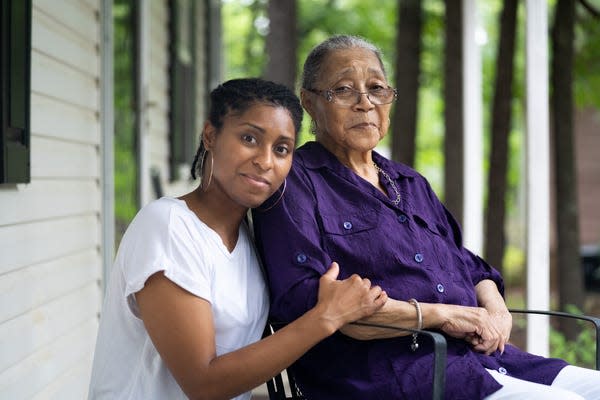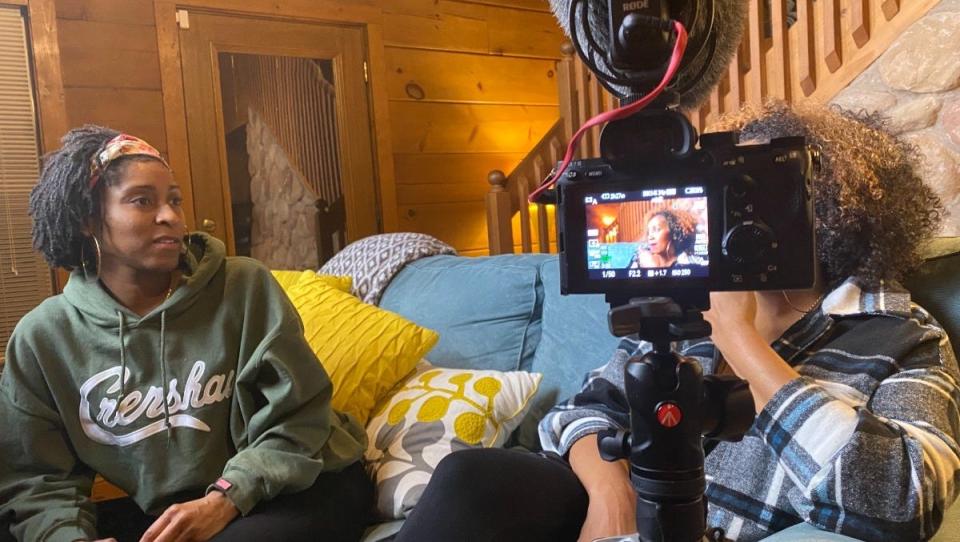Linda Martell's doc, 'Bad Case of the Country Blues' nears completion, still needs funding
Irmo, South Carolina resident Marquia Thompson isn't as huge of a country music fan as her grandmother, 82-year-old groundbreaking African-American female country artist Linda Martell.
However, she is an independent film director. Thompson's latest independent project, 4th iMpact Media Group's "Bad Case of the Country Blues," tells the story of her grandmother's ill-fated mainstream country music career between 1969 and 1975.
More information about the documentary -- including a new trailer -- can be located at https://www.lindamartell.com.

The project will be completed by the fall. Among those featured in the film are Grammy-nominated artist Rissi Palmer, author and Trisha Yearwood's "XXXs and Ooos" co-songwriter Alice Randall, author Andrea Williams and scholars Dr. Jada Watson and Amanda Martinez.
Thompson is releasing the film's official trailer to attempt to raise more capital to cover final filming expenses, plus attempts to solve legal issues regarding the film's distribution. She is also eyeing national and global film festivals and private screenings as she seeks to land a distribution deal.
Thompson launched a GoFundMe campaign two years ago when several artists were paying tribute to Martell's legacy. They included, Mickey Guyton, Maren Morris and Palmer, whose Apple Music Radio "Color Me Country" program honors her 1970 album.
"My family and I are working on a documentary film on Linda Martell, the artist, her experience as a Black woman singing Country music, an almost entirely white space at the time of her debut, a time when people who looked like her were fighting for the right to simply sit down to eat at a restaurant to enjoy a meal," she wrote in her call for support. A doc
Further, she wrote, the film would explore "why she was overlooked during her short-lived career, and the likely reasons for the sudden influx of attention she's received in the past 3-4 years."
To date, the campaign eclipsed its original $25,000 goal, namely due to a $5,000 donation by Morris and $10,000 from CMT. The effort got another boost when Martell won the Equal Play Award as an "advocate for elevating diverse and underrepresented voices in country music" at 2021's CMT Music Awards.
In 1969, Martell became the first Black female artist to crack the Top 20 of Billboard's Country charts via her cover of The Winstons' "Color Him Father." Other singles, "Bad Case of the Blues," "Before the Next Teardrop Falls" and "You're Crying Boy, Crying," were released from the album. She was the first Black woman to appear on the Grand Ole Opry, making 11 appearances on the Opry stage between 1969 and 1975.
Martell left producer and label owner Shelby Singleton's Plantation Records in 1970, uncomfortable by both the label's name (she felt it was racist, though Singleton denied this) and Singleton's decision to focus on "Harper Valley P.T.A." singer Jeannie C. Riley's career at the expense of hers. In interviews, Martell has contended that when she attempted to sign with other record labels after fulfilling her one-year contract with Plantation, Singleton's threats to sue labels pursuing Martell effectively blackballed her from country's mainstream.
To the Tennessean, the filmmaker, who is also a real estate agent and mother, described the process of finishing the documentary as a "challenging and chaotic." The effort has involved navigating issues surrounding Martell's original Plantation Records contract and rights to music, plus licensing issues related to music and video featuring her.
Thompson did not divulge the state of negotiations between 4th iMpact Media Group and the current rights holders to Martell's master recordings.
"You really cannot trust record labels. They're predatory," she said. "It's time for people to take a different approach to artists maintaining their rights while still being able to release mainstream music."

Asked to summarize the importance of the documentary, Thompson offered a hopeful statement.
"Minority, women and marginalized artists deserve to play on a level playing field in the country music industry," she said. "My grandmother was courageous artist who challenged an industry by following her passions. People who want to mirror my grandmother's desires undeniably need to know her history."
This article originally appeared on Nashville Tennessean: Linda Martell's doc, 'Bad Case of the Country Blues' nears completion, still needs funding
